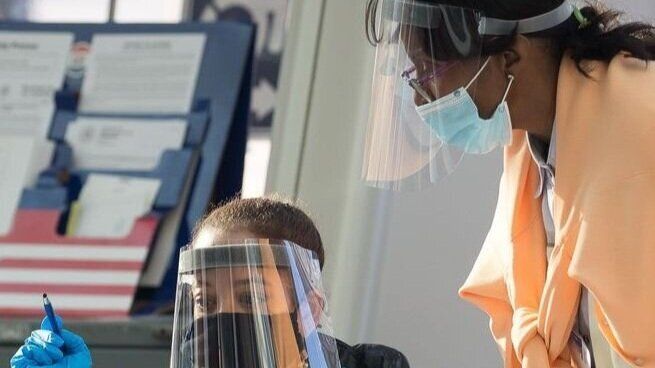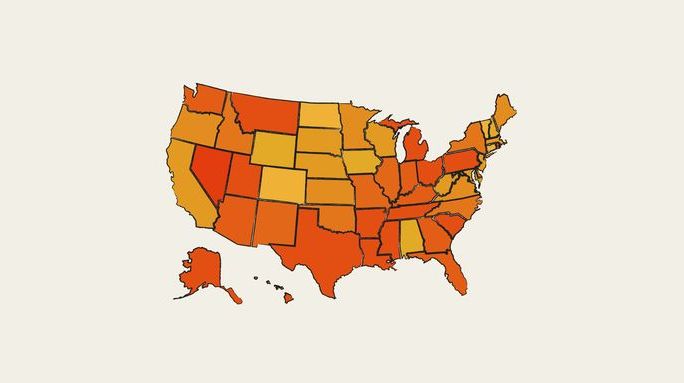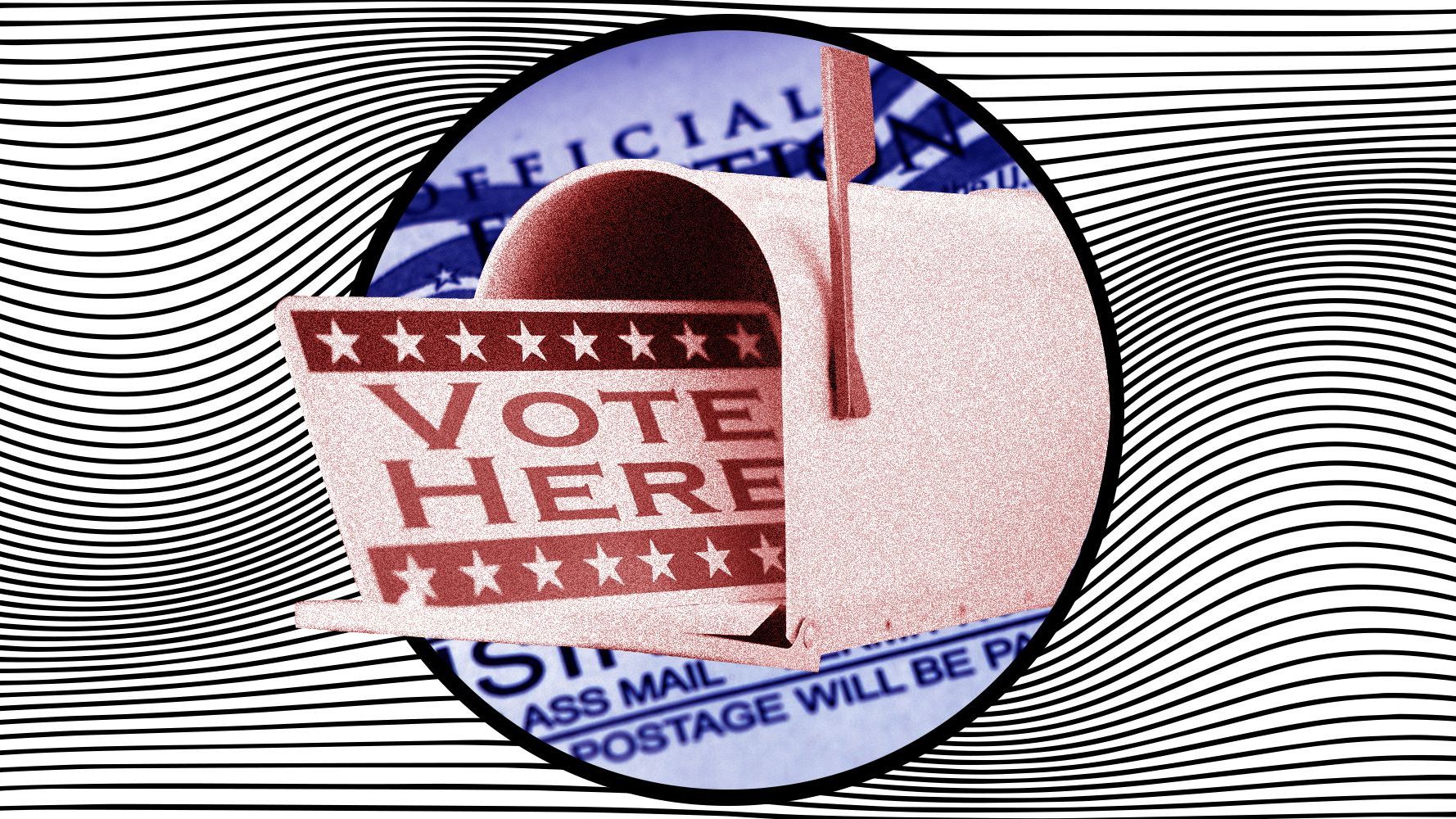How to Become a Poll Worker for the 2020 Election
The COVID-19 pandemic has caused a shortage across the country.


When COVID-19 was declared a global pandemic in March, none of us could have predicted the impact the disease would have on our daily lives—and the hundreds of thousands of lives we would lose. Add the fact that we're experiencing the most consequential election of our lifetime on November 3, 2020, and things become even more complicated—like how to safely show up to the polls to vote, and who can work the shifts at these polling places to help ensure free and fair elections.
In the 2018 election, around 58 percent of U.S. poll workers were ages 61 and older, with 27 percent of people within that group over the age of 70, according to the Pew Research Center. This year, elderly people are amongst the high-risk groups who are most susceptible to contracting—and dying from—COVID-19, preventing them from being able to safely work at the polls. This has created a poll worker shortage across the country, prompting a coalition of nonprofits, civic engagement organizations, and brands to come together and form Power the Polls—a first-of-its-kind non-partisan initiative to recruit young, diverse, healthy people to become poll workers.
Jasmine Clay, a 29-year-old woman who resides in Springfield, Virginia, is amongst the 400,000 people and counting Power the Polls has recruited since July 2020. When one of her friends shared a Power the Polls Instagram post, it sparked her attention. Clay liked the idea of engaging with her community, but there was another motivator: Clay's mom, who's currently a caretaker for her elderly mother (Clay's grandmother), was a poll worker during the last election cycle, but decided it was best not to put herself at risk this year. Ultimately, Clay decided to sign up and fill her mom's spot.
"Becoming a poll worker is a great way that we can play a small part in democracy," says Clay, who's looking forward to learning even more about the voting process and making an impact in the 2020 election. "There are so many things that we can't control, but the one thing we can control is helping out where we can with the right measures in place to keep everyone safe on Election Day."
One of the most common misconceptions about poll workers is that they are volunteers. Not only are poll workers paid—this year, some employers are paying their employees to sign up. Though the responsibilities vary depending on location, standard poll worker duties include greeting voters when they arrive, asking for their name and address to confirm they're in the system, handing them an election card, directing them where to go, processing their completed ballot in the machine, and, of course, giving them that coveted "I Voted" sticker after they're finished.
"Everyone loves the sticker," Clay laughs.
The country has already witnessed the effects of the poll worker shortage during the 2020 primaries, which led to long lines and the disenfranchisement of voters—specifically low-income voters and voters from marginalized communities of color—in places like Washington, D.C., Georgia, and Kentucky. Power the Polls helps people take the first step to sign up as a poll worker, then connects them to their local Board of Elections to complete the training process. Throughout the training, the organization will continue to guide poll workers with election resources and deadline reminders.
Get exclusive access to fashion and beauty trends, hot-off-the-press celebrity news, and more.
"It feels good to go out and march, make calls, or donate to organizations that you believe in, and all of those things should continue," explains Erika Soto Lamb, co-founder of Power the Polls and vice president of social impact strategy for Comedy Central and MTV. "But this is another really meaningful way that you can help play a part in our democratic system to ensure that we have safe and fair elections for everyone in your community or nearby. It's really an opportunity to act locally, even as we're thinking nationally about what elections mean and how to have fair elections for everybody."
America is facing a nationwide poll worker shortage, but you can help by going to https://t.co/70gHiVzDaT pic.twitter.com/qBJbcmVpVpJuly 14, 2020
Albeit the overwhelming amount of sign-ups it has received, Power the Polls is aware that a significant number of people may not follow through with completing the process to become a poll worker. That's why the organization will continue to be transparent about the hours—or days, due to early voting—the job requires, along with the COVID-19 safety measures (social distancing, providing personal protective equipment, etc.) that will be enforced in the polling stations. Additionally, once someone signs up to become a poll worker, they will remain in the system and likely be put in the mix for important local elections in 2021. Soto Lamb says there's typically a high return rate, since many poll workers find the work so validating.
As for specific sign-up requirements, poll worker eligibility varies depending on the state, but some areas only require workers to be at least 16 years of age. Most people can sign up from wherever they've been quarantining—not necessarily where they're registered to vote—and choose to be placed in their county, or wherever the need for poll workers is greatest. Those who speak multiple languages are even more encouraged to sign up, though being young, healthy, and wanting to make a difference is really what matters most.
"It's wild that elderly people have been doing this for years," says Clay. "I encourage people my age [to sign up]. If we can stand [10 to 12 hours] for concerts or other things, we can definitely do this. You're giving someone access to vote. That's pretty powerful."
If you're interested in becoming a poll worker, sign up here.
RELATED STORIES


Rachel Epstein is a writer, editor, and content strategist based in New York City. Most recently, she was the Managing Editor at Coveteur, where she oversaw the site’s day-to-day editorial operations. Previously, she was an editor at Marie Claire, where she wrote and edited culture, politics, and lifestyle stories ranging from op-eds to profiles to ambitious packages. She also launched and managed the site’s virtual book club, #ReadWithMC. Offline, she’s likely watching a Heat game or finding a new coffee shop.
